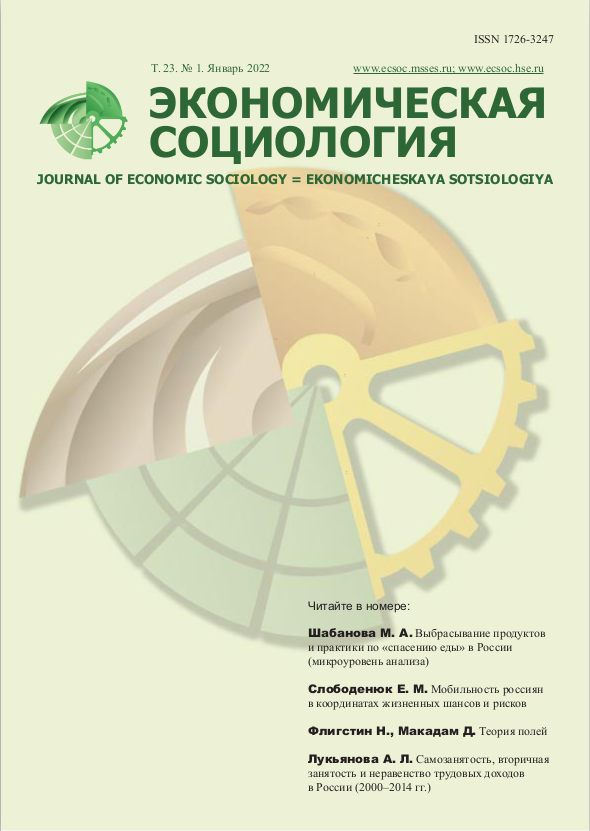Throwing Food Away and Food Rescue Practices in Russia (Microlevel Analysis)
Abstract
About one-third of all food produced in the world is thrown away. The higher the development level of the country, the more this practice is contributed to by microlevel actors, i.e., consumers (households). Food waste is a serious environmental, economic, social, and ethical issue, and a search for effective ways to alleviate this issue conforms to sustainable development goals. The problem is systemic, and its theoretical conceptualization follows this path. However, some aspects of this problem have not been examined equally: one of its least studied aspects is the relationship between (not) throwing food away, on the one hand, and actual food rescue practices implemented by consumers, on the other. Capturing this relationship is important for understanding both the nature of the food waste phenomenon and the comparative role of various recovery practices, including new ones (e.g. peer-to-peer (P2P) sharing), and the civil society potential in alleviating the waste issue. Based on a representative survey (N = 2,000 respondents, November 2020), the levels and factors of Russians’ engagement in groups with different attitudes toward throwing food away have been identified (“not throwing away food,” “throwing away edible food,” and “throwing away spoiled food”). We used regression analysis to estimate the relationship between the probability of being included in any of these groups and the involvement in various food rescue practices (feeding animals and food waste composting, extending the shelf life of products, and donating unneeded food to others, including P2P food sharing). It has been shown that consumers using social channels for food rescue (both practicing food sharing and not), ceteris paribus, are less likely to throw away edible food and more likely to throw away spoiled food (at least during the pandemic, although probably this is not so much due to the pandemic). Conclusions are made about the importance of combining social rescue practices with other types of food rescue and about the potential of civil society in mitigating the issue.













